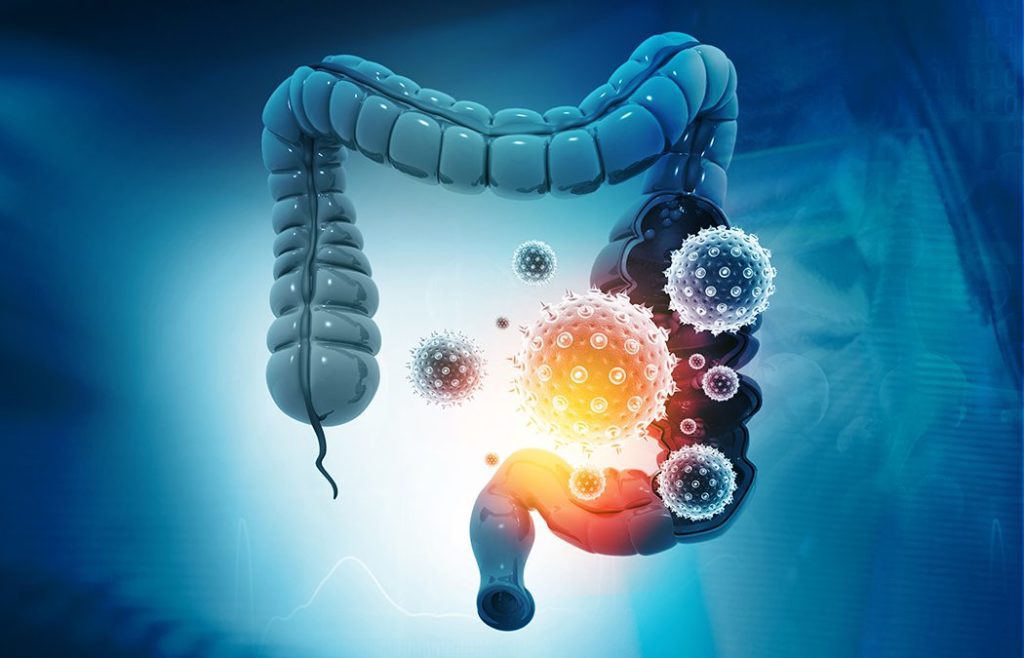Your gut can strengthen your immune system and create chemicals to make you happy too.

Colon cancer, bacterias, viruses in sick unhealthy intestine. 3d illustration
In today’s world, gut health has become a very hot topic since the bacteria in our body seems to dictate our health.
Gut microbiome plays an important role in our nervous system, immune system, and endocrine system. It is like a mega organ in our body.
Every individual has a unique ‘gut microbiome’ like a finger print.
When a baby is in the birth canal, it is the first place where microbes come into existence. These are called mother’s microbes given to the infant through birth.
Out-of-sync gut bacteria—meaning the wrong type of microbial diversity and/or lack of diversity—can affect numerous things including weight loss. Among its duties, your gut moderates fat storage, fat-regulating hormones, and blood sugar balance: key factors that determine whether or not you lose weight.
That makes sense when you consider your gut constantly processes nutrients, toxins, food additives, microbes, and drugs that pass through your digestive tract. As a health-regulating gatekeeper, your gut helps optimize your immune system while keeping out potentially detrimental substances.
Most of us, today, are losing diversity in their gut microbiome due to change of life style. Use of antibiotics, remaining indoors most of the time, and moving into the urban locality has contributed to this loss of healthy gut bacteria.
Further, the gut microbiome is called your second brain.
Here is a Vagus nerve that connects your gut to your brain. It interacts with your brain and changes your mood, happiness, motivation, and even can contribute to suboptimal neurological performance later in life. 90% of serotonin is produced by microbes acting as your “happiness neurotransmitter.”
Some important points regarding gut health that you should know:
- Relaxation is very much necessary for maintenance of gut health. Various techniques can be adopted like meditation or yoga to relax yourself and your gut as well.
- Eat whole foods and avoid packaged or processed foods, containing unwanted preservatives that disturb the healthy bacteria in the gut.
- Fresh fruits and vegetables should be consumed in place of canned vegetables or fruit juice. However, frozen fruits can be a healthy choice in smoothies provided no sugar or flavor is added.
- Include enough fiber in your diet like leafy greens, whole grains and legumes (if tolerated).
- Use probiotic foods like yogurt without sugar or added fruit.
- Reduce sugar. Try cinnamon or stevia instead.
- Add fermented foods such as kefir, sauerkraut, or kimchi.
- Eat a balance of seafood and lean poultry, and some grass fed meat.
A healthy gut is associated with a healthy metabolism. Antibiotics and other unhealthy food choices along with stress can change the composition of your microbiota, thus create an imbalance in microorganisms. This can have both short and long-term effects on your health in regard to regulation of metabolism, immunity and changing the eco-system of microbiota for long years.




